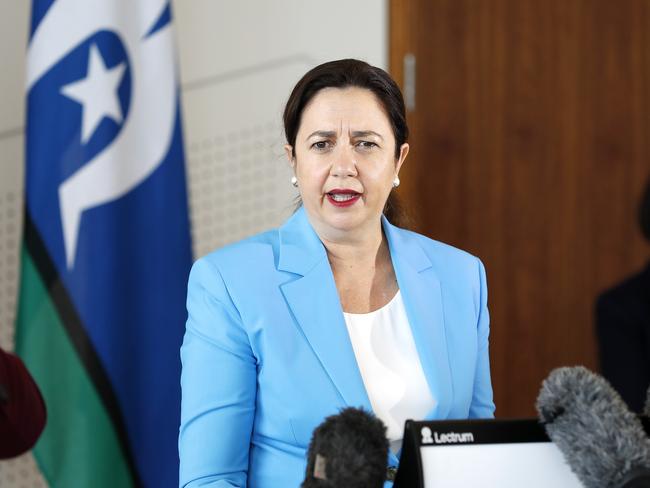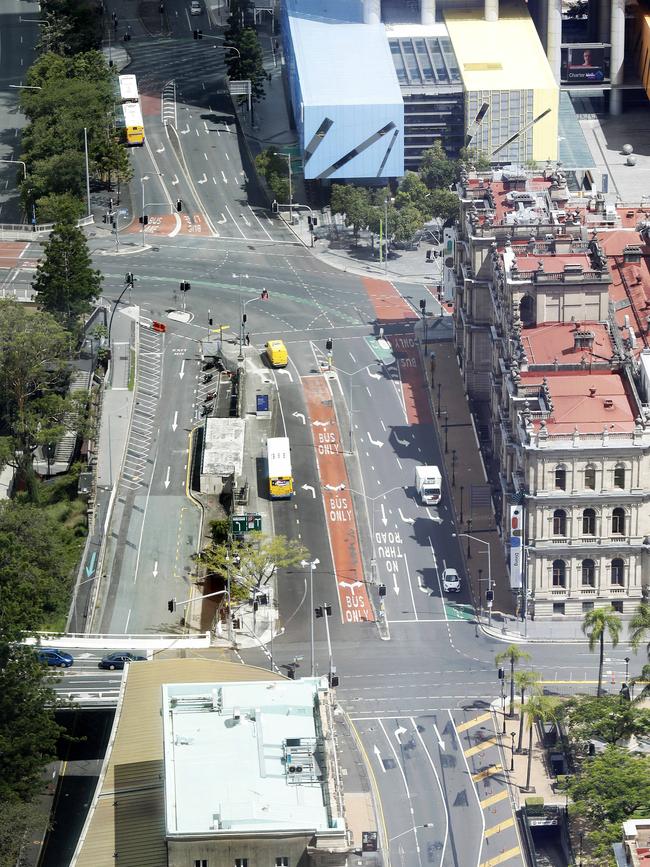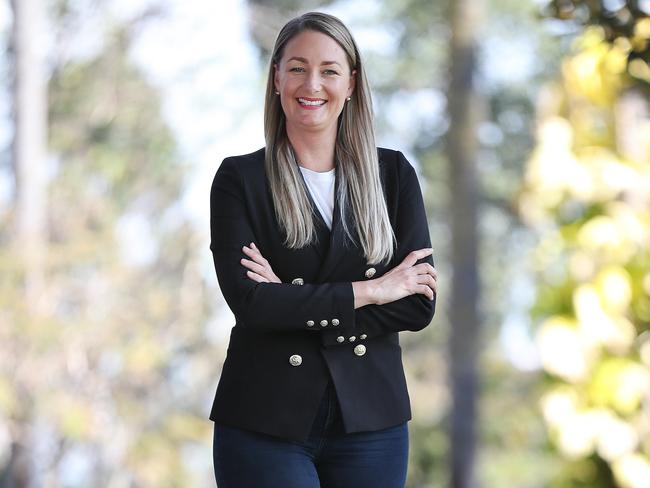Brisbane lockdown: Business fear snap closures will become more frequent
Businesses fear snap lockdowns will become more frequent as Premier Annastacia Palaszczuk pledges to do what it takes to keep the mutant COVID-19 strain out of the community.
News
Don't miss out on the headlines from News. Followed categories will be added to My News.
Businesses fear ‘job-destroying’ snap lockdowns will become more frequent as Premier Annastacia Palaszczuk refuses to rule out sending Queenslanders into isolation to keep the mutant COVID-19 strain out of the community.
Thousands of businesses are breathing easier on Tuesday after the state government lifted its snap three-day lockdown on Monday evening.
However, the shock of Friday morning‘s announcement following just one community case of the new UK strain has business groups fearing the tough restrictions will be implemented again – damaging the state’s economic recovery.
Premier Annastacia Palaszczuk on Monday refused to reveal whether Queensland would go back into lockdown if one new COVID-19 case was discovered in the community.
“It depends if it‘s from this UK variant, this is a whole new ball game,” she said.
“I don‘t have a crystal ball.
“Let‘s hope that we don’t but what we are concerned about is making sure we don’t see the spread of this highly contagious UK variant.”

The lack of clarity has prompted the Business Council of Australia to demand a clear and nationally consistent plan to manage COVID-19 outbreaks be implemented.
“A stop-start approach to the economy would be job-destroying, setting the nation back and making the task of recovery a longer haul,” Council Executive Director Jessica Wilson said.
“Knee-jerk restrictions and disproportionate, inconsistent reactions are confusing and confidence sapping.“
Australia‘s peak business group said a national, risk-based approach when deciding whether to go into lockdown would protect jobs.
“Knowing the rules, means businesses can continue to plan and adapt, customers can make bookings with certainty, heightening confidence and the ability of businesses to create jobs,“ Ms Wilson said.
The end of Greater Brisbane‘s three-day lockdown will allow thousands of businesses to largely return to normal, however indoor eateries will return to the one person per 4 sqm rule – effectively cutting many venues’ capacity to 50 per cent – or one person per 2 sqm in a small venue.
Masks will also be required at indoor shopping, entertainment and retail spaces until 1am on January 22.
National Retail Association CEO Dominique Lamb said hospitality and restaurant retailers were relieved to exit lockdown, but said some had concerns about patron restrictions.

Ms Lamb called for ongoing “clear direction and leadership”, declaring many businesses were fearful about the ongoing prospect of snap lockdowns.
“There is a lot of uncertainty and the nature of the beast is the government has to react to case numbers – but that uncertainty does breed economic uncertainty and then consumer uncertainty,” she said.
“It brings a level of anxiety around jobs.”
Ms Lamb said shopkeepers needed as much time as possible to roster staff, source stock and understand what ever-changing restrictions meant for their stores
More than 600 Greater Brisbane businesses were checked for COVID-19 compliance over the three-day lockdown, with Queensland Police Deputy Commissioner Steve Gollschewski revealing “no issues” were identified.
An economic blueprint to rebuild Queensland, released by Deloitte in November, found COVID-19 had bred a “crisis in confidence” – causing businesses to cease investment.
“This vicious cycle of uncertainty and hesitation needs to be stopped if we’re to rebuild the economy,” the report found.
Rebuilding Queensland‘s economy could result in value of the gross state product increasing by $20bn before 2030, according to Deloitte.
Chamber of Commerce and Industry Queensland Advocacy and Policy General Manager Amanda Rohan said the weekend‘s lockdown, and the likelihood of more, had a damaging flow-on effect to businesses.
“While the shutdown and operational changes for businesses in Greater Brisbane had immediate impacts, there are the knock-on effects which affect business confidence more broadly too,“ she said.

“The instigation of patron limits will continue to impact venues, especially as it’s still the summer school holidays, which is a crucial trading period.“
Ms Rohan said the threat of lockdown lingered over businesses and called for the government to outline what it would take for tough restrictions to return.
“What needs to happen now, is to know how we can prevent any future immediate shutdowns to avoid this uncertainty again,“ she said.
Federal government support is also due to wind-up within months as the risk of ongoing lockdowns continues despite Australia‘s vaccination rollout due to begin within weeks.
Ms Palaszczuk would not be drawn on whether JobKeeper support should be extended amid ongoing shutdowns.
“That‘s a federal responsibility and what we have seen is the majority of Queensland businesses are almost back to normal,” she said.





